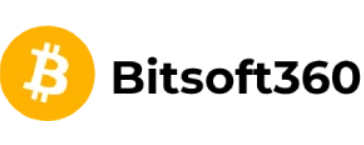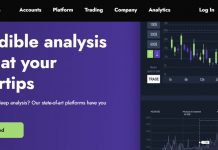 With participants spanning multiple industries and geographies, global trade can become a nightmare to manage. Websites like Bit Software 360 carter their UI and strategies for experienced and new bitcoin traders. The platform has paid extraordinary attention to detail while designing its user interface. Blockchain is a technology that enables participants in such relationships to eliminate the need for any one person or institution to act as a middleman.
With participants spanning multiple industries and geographies, global trade can become a nightmare to manage. Websites like Bit Software 360 carter their UI and strategies for experienced and new bitcoin traders. The platform has paid extraordinary attention to detail while designing its user interface. Blockchain is a technology that enables participants in such relationships to eliminate the need for any one person or institution to act as a middleman.
Blockchain gives all parties in the network an accurate record of each action taken by any participant, which increases trust among parties. That’s why many are claiming that blockchain will fundamentally change how things get done in business today. Currently, there are data-sharing limitations on the global magnitude.
Blockchain is a shared database where all transactions are open for viewing, and all participants can agree on their legitimacy. It means that everyone involved knows the details about everyone else’s transactions. In short, blockchain makes data verifiable by all users and impossible to fake or tamper with.
Building Trust in Government:
Governments and NGOs now use blockchain technology to distribute aid, public benefits, and disaster relief in the form of cryptocurrencies. For example, the United Nations Children’s Fund (UNICEF) started a program known as the Gamechanger initiative at the beginning of this year. This initiative aims to raise money for victims of natural disasters through cryptocurrency instead of fiat money. The program has already provided over $110 million worth of aid, including funds to help the Rohingya refugees displaced by the conflict in Myanmar.
Migrants and their Descendants:
By 2020, it was estimated that there would be more than 250 million migrant workers or the descendants of migrant workers residing in emerging economies. Naturally, this would lead to a growing need for remittances in these countries. Remittances are financial flows into developing countries from individuals that have moved abroad. In 2014, people recorded that over $430 billion were remitted globally.
Conventional banking systems are often too costly and time-consuming for migrants to send remittances back home every time they move due to the high transaction fees charged by these banks. However, blockchain can enable faster and more affordable transactions.
Increasing Government Accountability:
Several governments have used blockchain to increase transparency and reduce fraud in the way they work. It would allow patients to be aware of what health condition a device was approved for and monitor its performance in the market before purchasing it.
Estonia’s government records are digitized and stored on an open blockchain for anyone to view. In addition, they enable Estonian citizens to access, change or revoke their data if needed using their national ID system. Reducing Fraud in Global Trade:
As trade becomes more global, the risk of fraud increases. Due to the expansion of trading borders and increased volumes in global trade, it has become an issue for companies to verify if the person making a transaction is who they claim to be.
Supply chain companies can use blockchain to track goods from their source through their end users. It allows companies to track goods and identify counterfeit goods before they reach the market.
Land Title Registries:
Using blockchain to register land titles could reduce fraud, improve efficiency and facilitate more efficient administration. However, the costs involved in maintaining these paper records were prohibitive for most companies, who had to keep them for all their transactions regardless of their value or size. Due to these issues, many are now turning to distributed ledger technology as a cheaper and safer alternative than conventional methods such as paper records, spreadsheets or databases.
Beneficial Corporate Ownership Registries:
Over the last few years, anonymous shell entities have been used as a tool in money laundering and tax evasion. Shell companies aid in creating barriers to accountability, which often makes it easier for criminals to launder money and make financial transactions.
People could use blockchain to create a public registry of beneficial ownership information for these companies, making it much easier for law enforcement agencies and financial institutions to identify fraudsters.
Ensuring Medical Data Integrity:
Medical records are some of the most sensitive data available today. They can reduce transaction costs, boost local business, and increase government and corporate activity transparency. Improvements are underway in many developing countries.
For example, the Nigerian government is working with Israeli and American authorities to bring digital IDs to its people. And the Ghanaian government has partnered with multinational technology companies to store land ownership records on a blockchain ledger.
Blockchain technology could enable developing countries to leapfrog more advanced economies by going straight from centralized ledgers, which require a trusted intermediary, to distributed ledgers, which do not.
Bitcoin for a remittance and inflation-free economy:
The new technology will help in building a remittance and inflation-free economy. It has been extensively used in countries like Venezuela, Zimbabwe and other developing nations suffering from high inflation rates.
Bitcoin can be used by people in any part of the world to send money back home to their loved ones when the domestic currency devalues. A few examples are Sudan and Angola, where remittances play a huge role in making up for losses suffered by the national economy. So it’s clear that blockchain has enormous potential; it will likely change our lives as much as the internet did.








![Reltex Group Reviews: Explore business opportunities by Trading [reltexg.com]](https://comparic.com/wp-content/uploads/2023/12/image001-218x150.jpg)
![Mayrsson TG Reviews: Why Choose Crypto-Trading with Them? [mayrssontg.com]](https://comparic.com/wp-content/uploads/2023/12/image1-218x150.jpg)




![Bitogrand Opinion: Leveraging Trade Indices [bitogrand.com]](https://comparic.com/wp-content/uploads/2023/09/bitogrand-218x150.png)



